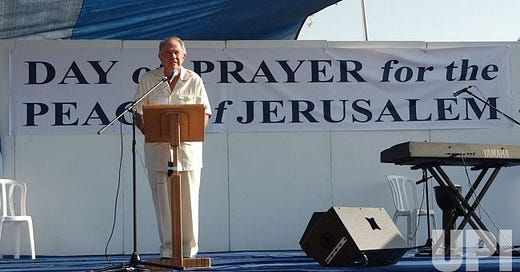I grew up in a city with a Presbyterian seminary where breakfast tacos are renowned. But I wasn’t a Presbyterian; I was reared Lutheran.
However, and through no fault of my parents, I became a Dispensationalist through the television ministrations of one wealthy former presidential candidate. He urged viewers like me to “pray for the peace of Jerusalem” with the assurance that as I sought the blessing of the Jews in “their” city, I too would be blessed.
But in college, through the ministry of Rev. Irfon Hughes and the other elders at Hillcrest Presbyterian Church, I was introduced to a better, fuller way to understand the Scripture. Instead of trying to understand the Bible through the lens of current geopolitics and the news, I learned to see the Scripture as centered on God and His glory as He redeemed His Church through the blood of His Son.
This changed my whole understanding of the Scripture and, of course, my life.
I. Praying for the Peace of Jerusalem
Psalm 122 is not about pra…



